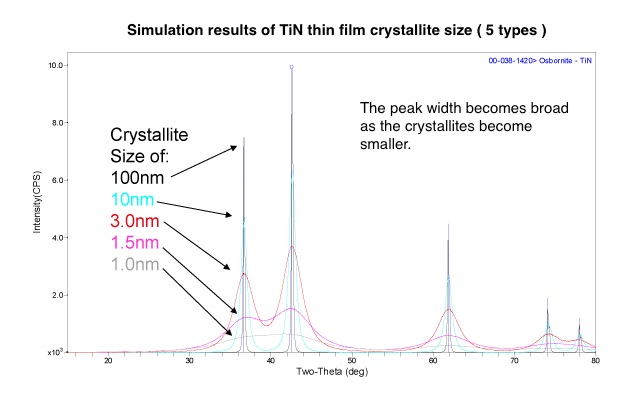Crystallite size determination using XRD
Home » Crystallite size determination using XRD
There are various analytical techniques such as FIB-SIM, SEM, EBSD, and TEM that can evaluate grain size.
Strictly speaking, the crystallite size measured in XRD and the grain size made in these observation methods are different, but here we will treat them as similar.
With XRD, the crystallite size can be evaluated using the fact that the full width at half maximum of a diffraction peak is wider as the crystallite size decreases.
However, there is a limit in the evaluation of the crystallite size using XRD Between a few nm to a few hundred nm.

The table below shows a simulation of changes in the XRD diffraction peak shape when the crystallite size changes, and a comparison table between XRD and other methods.
| SEM | EBSD | XRD | |
|---|---|---|---|
| Grain size | 10nm to hundreds of um | 100nm to several 10um | a few nm to 100 nm |
| Orientation evaluation | X | ◎ | ◎ |
| Lattice constant | X | X | ◎ |
| Twin evaluation | X | ◎ | X |
| Strain evaluation | X | ○ | ◎ |
Would you like to learn more about Crystallite size determination using XRD?
Contact us today for your crystallite size determination using XRD needs. Please complete the form below to have an EAG expert contact you.